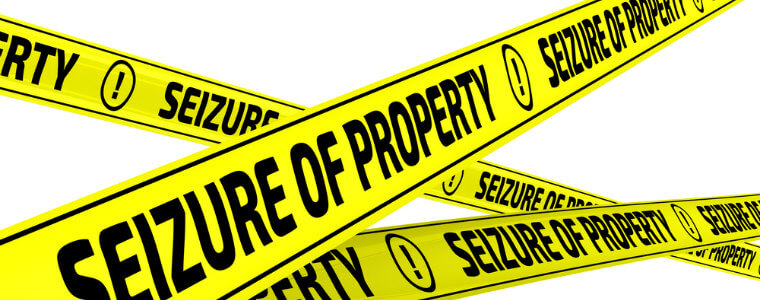

The modern court system in the State of Texas provides generous protections for judgment debtors, dating back to the state’s pioneer history where it once served as a safe haven from debtors seeking to escape the harsh judgments of courts “back east.”

However, the protections of exempt property, codified in the Texas Constitution, and in Sections 42.001 and 42.002 of the Texas Property Code, are designed for individuals facing judgment by a creditor.
Indeed, the many exemptions of 42.002, which include home furnishings, provisions for consumption, heirlooms, firearms, livestock and apparel, along with IRAs and college savings plans, are all for personal property, and the exemptions of 42.001 are for the homestead where a person lives with his or her family.
While our nation’s highest court has recognized the concept of corporate personhood in recent years with the Citizens United decision, Texas property exemptions (and other state exemptions, for that matter) do not extend to business assets.
If you have a Texas judgment, you can begin the collections process immediately by filing an Abstract of Judgment in the county clerk’s office where you believe the business debtor owns “non-exempt” real property.
What is non-exempt property? When dealing with business debtors, non-exempt property is a large percentage of what is owned. In fact, it’s all the property that is not “exempt” as a matter of law.
The Texas Property Code provides an extensive list of exempt property in Texas, which would usually include the homestead, wages, heirlooms, jewelry, cash up to a certain amount, and vehicles for each person licensed in a household to drive. Exempt property even brings under its protections farming and ranching tools and equipment, livestock and certain items which may be put to work by small business owners as tools of the trade.
However, in order to qualify for the exemption, the property must belong to a natural person and depending on his or her business structure, even the Main Street small business owner will quickly discover that his delivery van, computer and the petty cash in the register are subject to levy to pay a judgment.
This is where legal expertise related to “piercing the corporate veil” – something attorney Seth Kretzer is well versed in – is needed – because business items, if owned by the business and not an individual person, will fall outside of exempt property status.
As with dealing with individual debtors, tools for post-judgment discovery in Texas, such as interrogatories, can be used to obtain information directly from the debtor business about its assets. This can help make the distinction between what is owned by the business and what is owned by the individual.
As with individual debtors, failure to respond to post-judgment interrogatories in a timely manner will permit the creditor to file a motion to compel. Failure to comply with an order to compel may lead the court to hold the business debtor in contempt. A business debtor in contempt will be subject to all the same penalties as an individual in contempt, which will fall on the business’ owner or other representative.
Once you have identified non-exempt property owned by the business debtor, you are in a good position for enforcing a judgment debt against a company by way of filing your abstract of judgment with the county clerk.
Once the abstract of judgment is filed and properly recorded, then a “judgment lien” is created which will automatically attach to any non-exempt real property owned or thereafter acquired by the debtor business and located in that county.
A judgment can be abstracted for up to ten years after it is entered. From the date the judgment is abstracted, the judgment creditor has another ten years to abstract the judgment and collect on it. At the end of those ten years, the creditor can abstract the judgment yet again.

Another option for enforcing a judgment debt against a company is to obtain a “writ of execution.” Thirty days after judgment, you may obtain such a writ to attempt to seize the business debtor’s non-exempt property to satisfy your judgment.
The court-issued writ of execution allows law enforcement in Texas to seize and then sell real and personal property belonging to the creditor in order to help satisfy the judgment.
In some situations, judgment creditors may choose to pursue what is known as a “writ of garnishment.” A writ of garnishment is particularly useful in situations where a debtor business does not have enough real or personal property in the state to satisfy the judgment. Business bank accounts and petty cash accounts can both be subjected to a writ of garnishment.
The rarest of collection methods is to ask a court to appoint a receiver, ideally a Texas judgment collection lawyer, under a “turnover order.” This receiver will use its court-appointed power to find and turnover assets to the creditor where such assets are unattainable through normal collection means. This is the most powerful option, but it is not commonly granted by the courts due to its power.
If you wish to know more about collecting on judgments against businesses in the State of Texas as well as domesticating a judgment from another state or country, you will need a lawyer with specific experience with these topics, and who has the right knowledge and resources to help you.
Contact Attorney Seth Kretzer online today to discuss your case and learn how to collect your judgment.